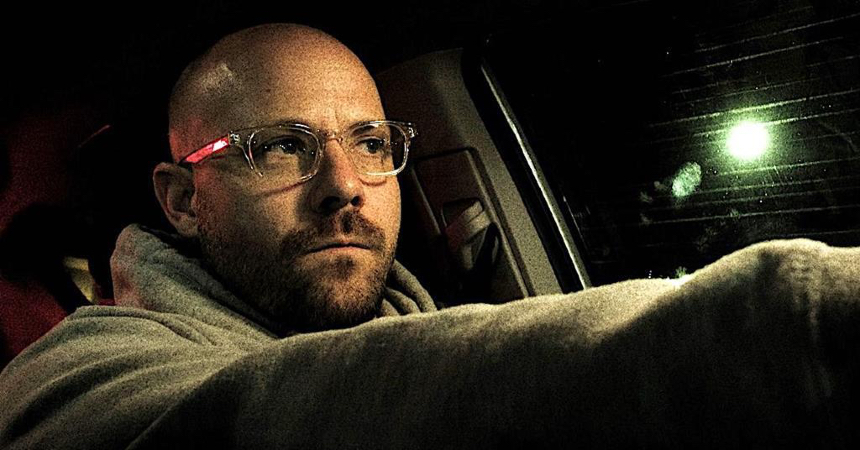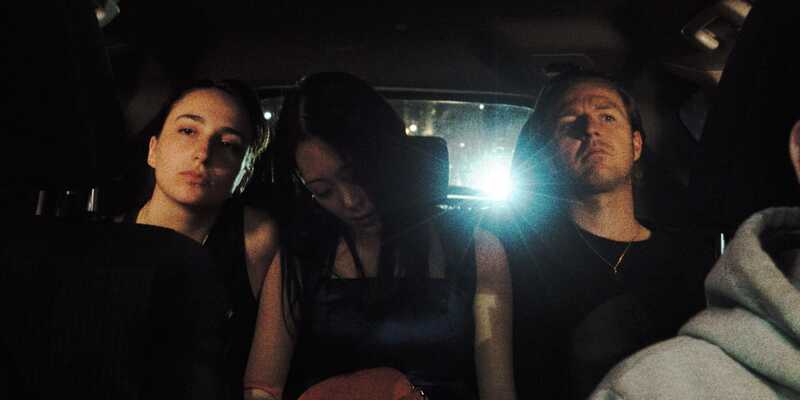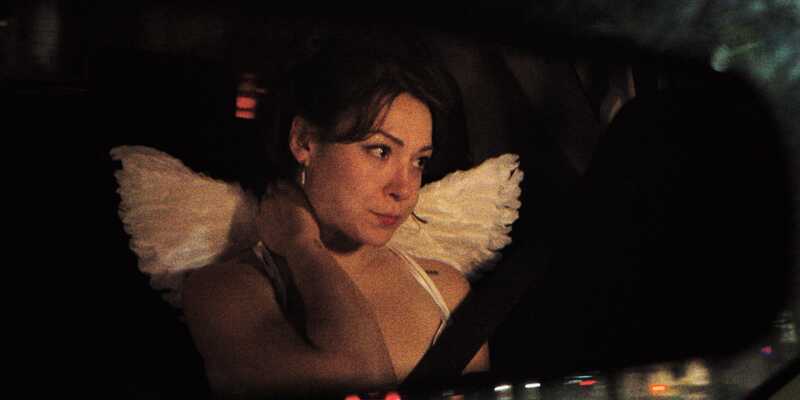Lausanne 2024 Review: SELF DRIVER Spins Survival Satire in Gig Economy Gone Rogue
In Michael Pierro's darkly satirical debut, a cash-strapped cab driver plunges into a digital enslavement where the promise of easy money reveals a world of moral decay, autonomy lost, and the high stakes of a gig economy spiraling out of control.

Canadian filmmaker Michael Pierro's debut feature Self Driver is a DIY trippy satirical thriller about a struggling cab driver’s descent into a shadowy world offers a visceral exploration of freewill, capitalism, and the cost of survival in a gig economy.
The film opens innocuously enough, following D (Nathanael Chadwick), who striving to raise cash for living while his girlfriend is at home with their toddler. D goes through the morass of driving difficult on an Uber-like app, VRMR.
Feeling pretty burned out and raising little cash, one client he picked up at the airport tells him he can earn several thousands riding people on a single night if he sings up for his app. In D's case, desperate times call for desperate measures.
Pierro’s previous work in television, particularly with Workin’ Moms and New Eden, reveals a knack for dissecting everyday dilemmas with a sharp, often comedic eye. His background in editing fast-paced TV and his experience with dark, character-driven films like Honey Bee and The Last Porno Show have equipped him with an acute sense of timing and tension.
In Self Driver, he uses these skills to create a dynamic and engaging storytelling, even though the majority of the film is shot from an inside of a car, in a guerrilla style. The influence of his editing craft is evident throughout the film, with sharp cuts and meticulous pacing amplifying the mounting tension and retaining the audience's attention as the protagonist’s night spirals out of control, while he remains mostly behind the wheel.
Compared to Pierro’s previous feature film editing projects, Self Driver feels like an expansion of themes he’s previously touched upon but now magnified through the lens of personal agency. While Honey Bee examined societal power dynamics through the story of human trafficking, Self Driver turns its gaze to the exploitative nature of the gig economy, questioning how much control workers truly have over their lives. Both films share an undercurrent of moral ambiguity, though Self Driver delves deeper into the turmoil of its lead character, as he becomes baited for more cash, as his duties do not end with reaching the client's destination.
The film itself is as much a formal exercise in genre blending as it is a social commentary. Pierro employs a distinctive blend of dark comedy and thriller elements to create a tone that constantly shifts between the absurd and the menacing. The cab driver’s encounters with bizarre, sometimes terrifying passengers function as episodic glimpses into the societal underbelly, while the ever-increasing demands of the app serve as a stand-in for the dehumanizing pressures of capitalism or people owning the tools.
In one perspective, Pierro created a dark comedy about what the writer and scholar Douglas Rushkoff calls "the dumbwaiter effect", in reference to the invention used by Thomas Jefferson: it was ostensibly a labor-saving device—one that eliminated the need to traverse the stairs from the kitchen to the dining room—but it was, in fact, intended to keep the enslaved people who were serving the food out of view of Jefferson’s dinner guests. But in Pierro´s take, the enslaved workers of the app, are visible but are told not to talk or interact with customers, just carry out the instructions appearing on the phone.
Nevertheless, D becomes a slave of the hard-to-predict app as the gamification system penalizes him every time he fails to carry out the instructions. And the app is all-knowing. After he drives a perplexed middle age man to a seedy part of the town, the app tells him to move to the backseat next to the customer. D's autonomy, free will and need to earn get tested in awkward ways.
Where Self Driver distinguishes itself within Pierro’s oeuvre is in its ability to blend tension with a biting critique of modern life. While the director's earlier works, particularly Room for Rent and The Last Porno Show, also explored themes of power and desperation, Self Driver becomes a poverty porn for the age of technofeudalism.
The ridesharing app turns out to be a crimesharing app, a real-life Grand Theft Auto with the rider becoming complicit in transgressions. With dark comedy rolling, Pierro throws into the mix a little bit of the midnight movie spice when the protagonist gets high on an unknown hallucinogenic throughout the night as he become entangled in a trafficking scheme.
The aesthetic choices, such as the claustrophobic framing of the car interior and the dim, urban color palette, reinforce the protagonist’s sense of entrapment. Despite the minimalis style, set by budget constraints, the Taxicab Confessions set-up and some rougher aesthetic edges, Pierro´s crew managed to elevate Self Driver to not feel that much DIY or mumblecore. The film is pretty plot-driven, with dark laughs rolled in, despite a bleak undercurrent about how the economic landscape has changed with the oppressions along the way.
Self Driver
Director(s)
- Michael Pierro
Writer(s)
- Michael Pierro
Cast
- Nathanael Chadwick
- Reece Presley
- Lauren Welchner









